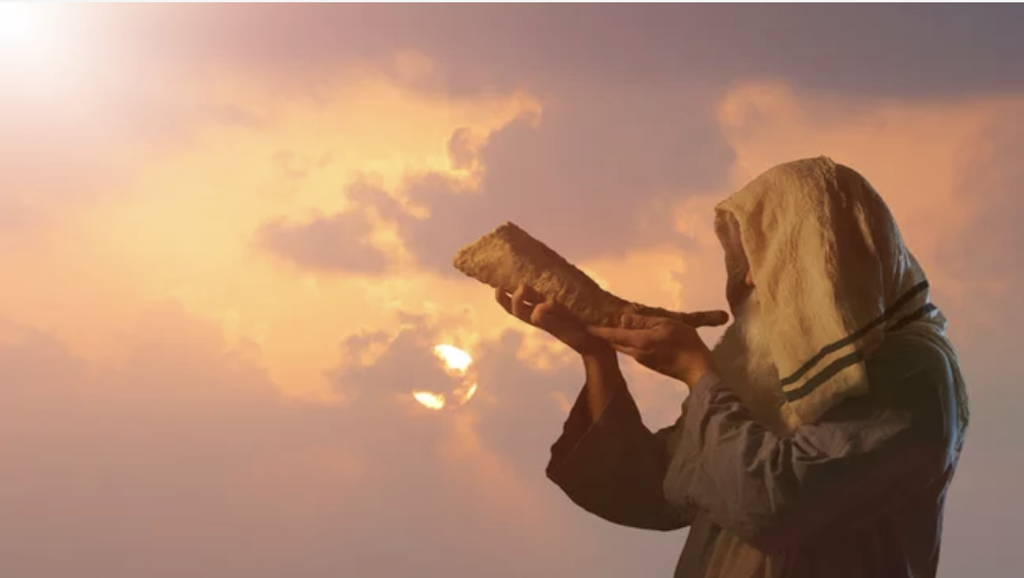The Feasts and Holy Days:
Throughout the Bible, God established specific feasts and holy days for His people—appointed times to pause, reflect, and draw near to Him. These special days were more than rituals; they were reminders of His faithfulness, opportunities for repentance, and celebrations of His presence. Today, while we may not observe these feasts in the same way, they still hold deep spiritual significance and lessons for our faith. Let’s explore three major feasts: the Feast of Trumpets, the Day of Atonement, and the Feast of Tabernacles.

The Feast of Trumpets (Rosh Hashanah)
The Feast of Trumpets, also known as Rosh Hashanah, marked the beginning of the Jewish civil year and was a call to repentance. In Leviticus 23:23-25, God commanded His people to observe this holy day with the sounding of trumpets, a sacred assembly, and an offering.
The blowing of the shofar (a ram’s horn) signified a wake-up call for the people to examine their hearts, turn back to God, and prepare for the coming Day of Atonement. It was a day of reverence, reflection, and anticipation.
What It Means for Us Today:
Even now, the Feast of Trumpets reminds us to stay spiritually awake. Jesus often spoke about being watchful and ready for His return (Matthew 24:42). It’s a call to self-examination, repentance, and a renewed commitment to God.
The Day of Atonement (Yom Kippur)
The Day of Atonement was the most solemn and sacred day in the Jewish calendar (Leviticus 16; 23:26-32). It was a time of deep repentance when the high priest would enter the Holy of Holies to offer a sacrifice for the sins of the people. This was the one day each year when atonement was made for all of Israel.
What It Means for Us Today:
For Christians, the Day of Atonement points directly to Jesus. He became our ultimate High Priest and our perfect sacrifice, taking upon Himself the sins of the world (Hebrews 9:11-12). Through Christ, we no longer need a yearly sacrifice—He has made a way for us to be fully reconciled with God. This day reminds us of the depth of God’s mercy and the power of Jesus’ sacrifice.
The Feast of Tabernacles (Sukkot)
The Feast of Tabernacles, or Sukkot, was a joyous festival celebrating God’s provision and presence (Leviticus 23:33-43). For seven days, the Israelites lived in temporary shelters (booths) to remember their time in the wilderness and how God faithfully led and provided for them. It was also known as the Feast of Ingathering, celebrating the final harvest of the year.
What It Means for Us Today:
Sukkot is a beautiful picture of God dwelling with His people. In John 1:14, we learn that “The Word became flesh and made His dwelling among us.” Jesus is our Emmanuel—God with us. The Feast of Tabernacles points to the future when Christ will return and dwell with His people forever (Revelation 21:3-4). It’s a reminder to rejoice in God’s presence and trust in His provision, no matter our circumstances.
Why These Feasts Still Matter
Even though we may not observe these feasts today in the way ancient Israel did, their meanings are timeless. They remind us to:
✔ Stay spiritually awake and ready for Christ’s return.
✔ Turn to God in repentance and embrace His mercy.
✔ Rejoice in His presence and trust in His provision.
Each of these feasts ultimately points to Jesus—our call to repentance, our perfect atonement, and our hope of dwelling with God forever. Whether through personal reflection, worship, or prayer, we can still honor these sacred themes in our own lives today.
Which of these feasts speaks to you the most? Have you ever considered their significance in your faith journey? Let’s reflect together!






